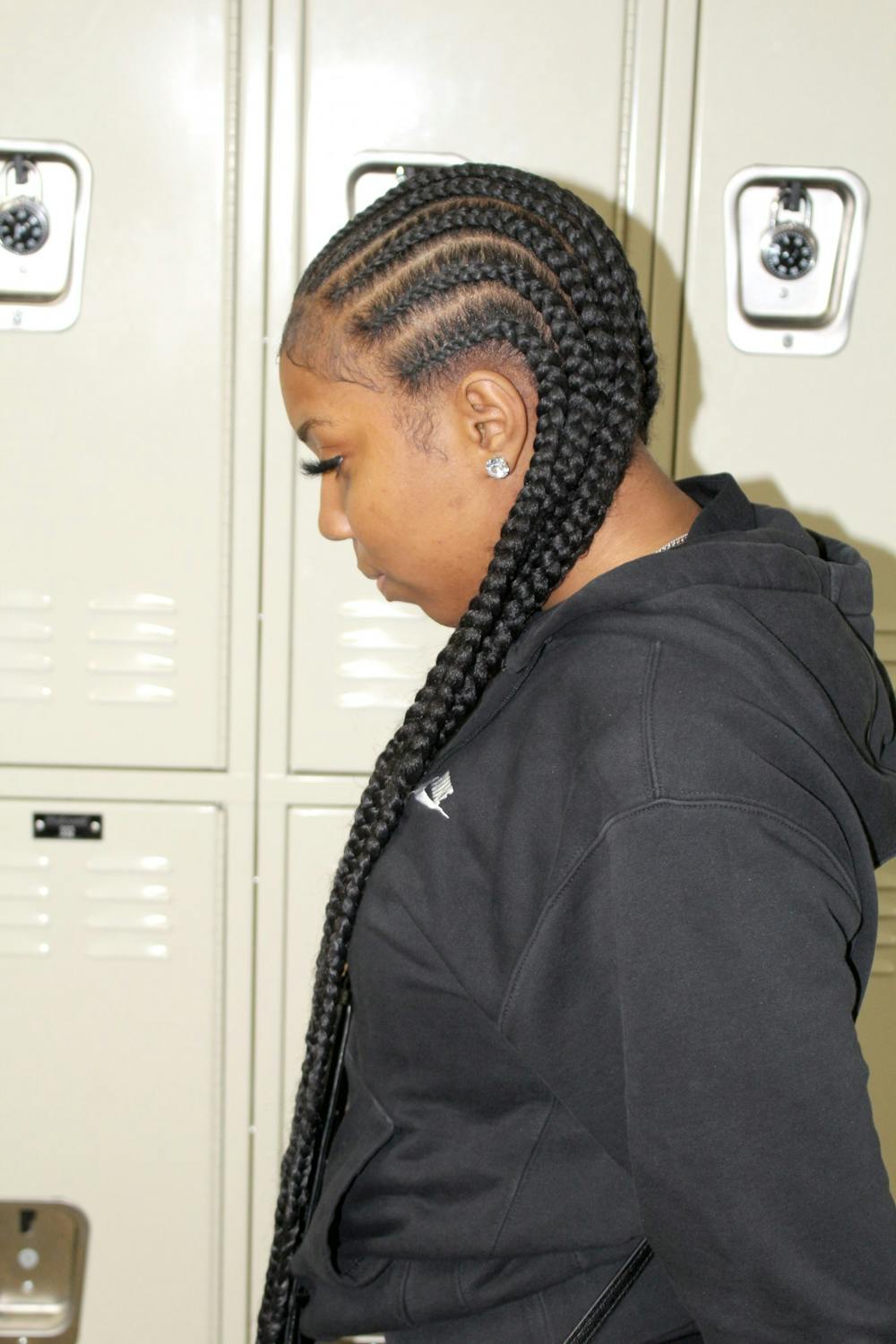
CMA senior Kamorah Armstrong. Courtesy photo.
Since African people were enslaved in America, they have always had innovative ways of taking care of their hair. Plaits, braids, and cornrows were various styles used during this era. These low-maintenance hairstyles were more effortless for hair to be out of the way.
As we transitioned into the Jim Crow era, becoming the true “American” or whitewashing our ethnicity to assimilate to the new way of life with perms and caulk. But in 1966, Huey P. Newton and Bobby Seale, Merritt College students, created the Black Panthers. They made a new style to show being bro black and they took uniforms from police to show unity in hating the industrial system.
Solange once said in “Amandla,” “There’s a secret language among black girls who are destined to climb mountains and cross rivers in a world that tells us to belong to the volleys that surround us.”
As a Black girl, hair is a way to unite as a Black woman and change it in ways like no other.
With the transition from processed hair to natural, some ways people go natural is by doing the big chop, which is cutting off all the dead hair that doesn’t have the natural curl pattern or if you feel like it’s not growing at all, but the main point is to be patient and not rush the process.
I asked Kamorah Armstrong Why she started doing hair and why?
“I started in 2018,” she said. “because no one in my family knew how to do hair, and I would always want my hair done, So I kept practicing and got better at it.”
Hair can be a way for people to express themselves and build confidence. On social media, there’s this thing many Black women say about getting your hair washed keeps bad energy away simply because hair is connected to the brain.
Hair and hair care has always been related to Black history and has impacted many African Americans' lives.


